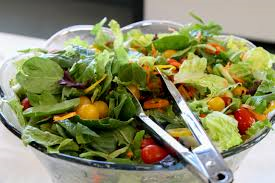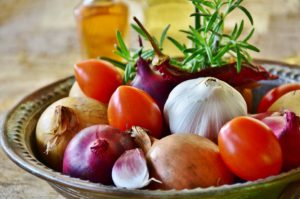Getting your Vegetable Garden to Continually Produce

Planting a home garden can be so exciting because not only will a well-installed garden complement that outdoor living space, but a well-maintained garden will increase your property value. While it is true that a garden can create an almost perfect oasis with its greenery and flowering plants that can be a good treat, creating an edible garden also has its benefits of providing foods grown in a safe way both for you and your family to enjoy.
I believe that while flowers and other garden greens have their place it’s best to strike a balance by getting the best of both worlds. What I mean by this statement is to plan your garden in such a way as to have your flowering plants bringing that need color with their soft texture along with providing space for your edible garden.
When it comes to growing an edible garden our desire is to have these edibles producing for as long as possible so we can have an almost endless supply of veggies at our demand. I know that the fall and the winter months can place a damper on a garden that is paying off in big ways because as the cold months sets in gardens stop producing taking their rest until the following growing season.
The good news however is we will be looking at ways in having our gardens producing more while extending the season during those chilly winter months.
12 Steps to having a Garden that Produces Vegetables continually

- Planting in the right location
- The right soil type
- The right watering methods
- The correct fertilizing practices
- Companion Planting
- Proper spacing of plants
- Keeping an eye out for garden insects pests
- Disease Control
- Keeping the garden beds free of debris
- Having a weed-free garden
- More than just harvesting
- Fall Crops
- Extending the season to eat fresh during the winter months
1. Location, location, location
The proper location is so important and this has been the downfall of many gardens. Garden plants must have this requirement met. know the light requirements for your veggies and give them that. If you are not sure then read the seed package during the time of purchase or if you’re planting seedlings then have a talk with your garden rep or nurseryman to find out the preferred lighting conditions for veggies you’re planning on growing.
2. The right soil type
The soil is another important factor of growing healthy vegetables, garden soils that are chosen should be organically rich because this soil type will hold moister but will allow excess water to drain through along with helping the plant’s roots to better absorb fertilizers.
3. The right watering methods
Give a plant too much water and it will die, give it too little water and it will die. Many garden plants including vegetables have suffered at the hands of the inexperienced gardener. Although vegetables have different water requirements get to know what each veggie type requires. Some veggies may require the same amount while others may not, get to know the difference to grow healthy vegetables.
4. Fertilizing the right way
Understanding fertilizers and how they work is so important, there are so many brands that are sold that it can become confusing as to what to purchase. When it comes to growing an edible garden my preference is to go for organics. I have recently written an article on the best fertilizers for vegetable gardens. Refer to the link that is provided.
5. Companion Planting
Companion planting is a natural way to grow healthy plants, this practice involves grouping plants together that will complement each other for example planting basils near lettuce and tomatoes repels mosquitos while improving the flavors of these ( lettuce and Tomatoes ) veggies for more on companion planting refer to the following link.
6. Proper spacing of plants
Although there are many factors that contribute to plant diseases such as overwatering, using infected tools that are not sterilized on healthy plants, etc.., planting too closely will also encourage disease. Give your garden plants the proper spacing so when they reach maturity they will have room to continue to flourish. The proper spacing will allow for proper air circulation that will lessen the chance of the developing and the spreading of disease.
7. Keeping an eye for garden insects pests
Garden insect pest can wreak havoc on a healthy garden, turning it into a nightmare, there is nothing more frustrating than growing a healthy garden, then one day only to discover that your plants are starting to deteriorate and on examining your garden to find insects making a meal out of your plants.
This has been my experience on many occasions but the good news is with the proper knowledge you can bring these insect pests under control with several proven methods that will eliminate them. This is my most recent post on 1o common garden insect pests which will give insights on how to deal with them and much more. For more information on garden insect pests refer to the category section.
8. Disease Control
It is a known fact that most garden plants develop disease from overwatering, planting too closely, and using infected tools on healthy plants. There are other reasons but these are the more common ones to remember. Another source of information is to read the seed package or to have a talk with your garden nurseryman about what disease that particular veggie is known to have and how to treat it. For more on signs of plant, disease refer to the category section.
9. Keeping the garden beds free of debris
A buildup of debris is a breathing ground for garden insect pests and disease, a manicured garden is not only pleasing to the eyes but will help in keeping your vegetables healthy. A garden that’s clear of debris will have everything orderly so strive for a debris-free garden that will make growing your veggies easier.
10. More than just harvesting
You have toiled in your garden and now comes the fun part and that’s reaping a harvest, this gives such a good feeling knowing you are eating what you have grown and cared for over those few months. Reaping a good harvest will cause you to save on that grocery bill also as you harvest your edibles, working outdoors getting that much-needed exercise, reduce food waste, enjoy better-tasting crops, eating fresh, etc… remember with all of these benefits it’s more than just harvesting.
11. Fall Crops
Reaping a harvest late in the year is possible, for a fall crop. Planting edibles such as cauliflowers, broccoli, spinach, and peas will give a good harvest. Planting these veggies and other garden greens in the months of July through August is the ideal time to give you a harvest in September and October.
12. Extending the season to eat fresh all winter long
Growing vegetables well into the winter months are possible with the help of cold frame gardens. Cold frame gardens involve vegetables or herbs that are grown in an enclosed box that can open for ventilation. This garden type will generate the right temperature for your veggies protecting them from the harsh winter chill. For more on cold frame gardens, how they work and the benefits they offer refer to the link that has been provided.
The final word on tips on growing vegetables
Having an almost endless supply of veggies is made possible by implementing these methods that have proven to work wonders. If you were looking for a way to get more out of your edible garden then look no further. Growing your edibles is a great way to grow healthy while saving a few dollars why not give it a try and see for yourself you will be so happy with the results as you connect with nature in this most awesome way by working on the great outdoors. With that said let’s get started I promise you, you won’t be disappointed.
About the author
Norman loves being in the garden, both at home and for his job....
he is 'Natures Little helper' being outdoors, growing his vegetables and flowers from an early age.
Now having spent over 22 years in the profession he want to give some of his knowledge to others...
his vast array of hints and tips you will find scattered over this site will help you no end growing plants in your garden.

Another thing that I would like to add to your otherwise excellent article is that by growing vegetables except from all the obvious advantages this offers it also provides a way or relaxation and taking your mind off the everyday routine. Some people like to take sports or have a hobby but growing vegetables is also a nice way to give your mind a little bit of off time in order to clear your thoughts. It can be a very relaxing and pleasant experience to be honest.
You are right creating a garden of any sort offers so many benefits. Thanks so much for your kind words and commenting.
Great tips on growing a veggie garden. Your writing style is simple enough for beginners to follow, like me. Reaping a fall harvest is of spacial importance to me as it gives me harvests. I want to plant a veggie garden this week so I will bookmark your page for reference. Thank you for sharing your article.
Regards,
Courtney-
I am so happy to help and thanks for those kind words wishing much success with your garden project.